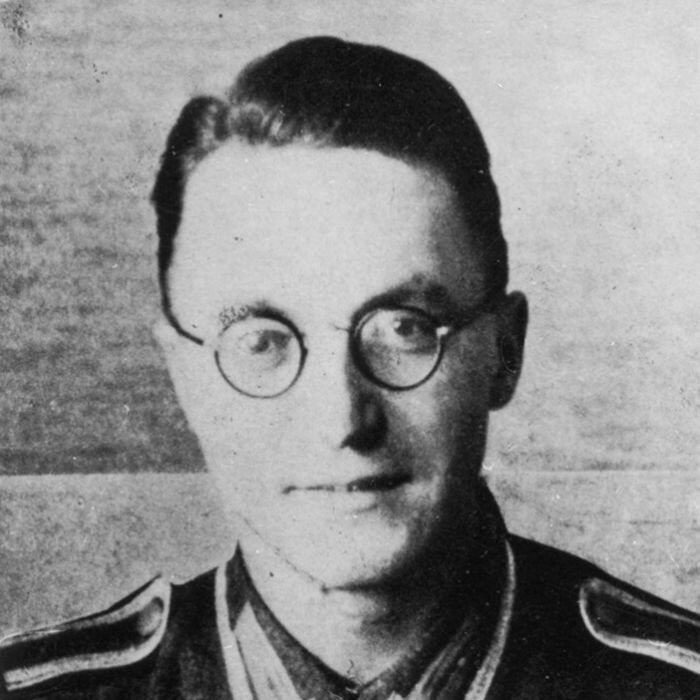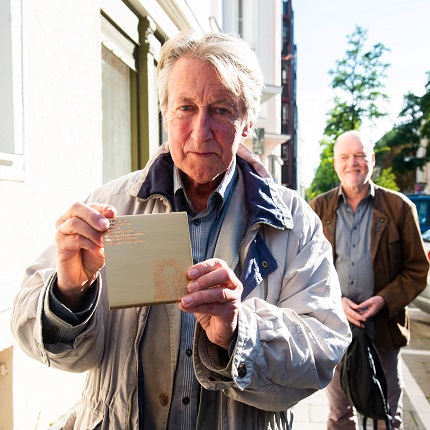Franz Wipplinger was born in Munich on January 10, 1915, the son of labourer Johann Baptist Wipplinger and his wife Anna, née Falkner. He grew up with his older sister Anna at Maistrasse 31. Franz Wipplinger was a member of the Catholic parish of St. Antonan, where he was also an altar boy. He attended first the primary school in Tumblingerstrasse and then the Theresien-Gymnasium high school. In 1937 he left the “Seminar für Spätberufene” (seminary for those with a late calling to the priesthood) in Munich-Fürstenried with his Abitur (school-leaving examination and university entrance qualification). He subsequently entered the seminary and began studying Philosophy and Theology in Freising.
Franz Wipplinger was neither a member of the Hitler Youth nor of the Nazi Party (NSDAP), but belonged to a Catholic youth group. In 1937 he had to do his “Reichsarbeitsdienst” (Reich Labour Service), a compulsory paramilitary service for all young men and women.
In September 1939 Franz Wipplinger was called up for the Wehrmacht (German army). After being severely wounded on the Eastern Front in May 1942, he was deployed as a clerk with the army in Munich from December 1942 onwards. Franz Wipplinger expressed his concerns about the war in letters and wrote in his diary about his dismay, but also about his hope. In August 1943, for instance, he wrote, “In spite of all the apathy, mass psychosis and fear of the Germans, Hitler will … no longer be able to prevent the subjugated conscience from stirring and concern, reason and radical rejection from getting ever louder.“ Franz Wipplinger was probably familiar with the flyers of the “White Rose” group.
Because of his diary entries criticising the regime, Franz Wipplinger was denounced and, from December 4, 1943, interned in the Munich military prison. The military court also accused him of listening to “enemy broadcasters” and possessing flyers hostile to the State. The field military court of the Central Court of the Army in Berlin sentenced him on August 31, 1944 to death for “Zersetzung der Wehrkraft” (“undermining military force”). Aged just 29, Franz Wipplinger was executed on October 24, 1944 in Spandau Prison in Berlin. His remains were buried after his sister Anna’s death in 1985 in the family tomb in the Munich Waldfriedhof cemetery, which the Munich Kreszentia-Stift trust took over after her death. Anna Wipplinger joined the trust after the end of the war and kept the memory of her brother alive for as long as she lived. (TExt: Friedbert Mühldorfer; editor: C. Fritsche; translation: C. Hales)





